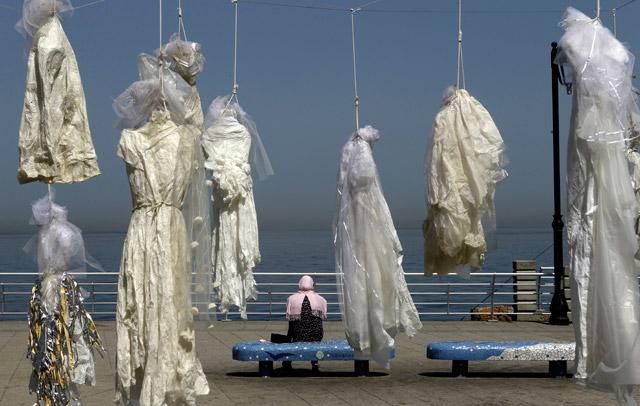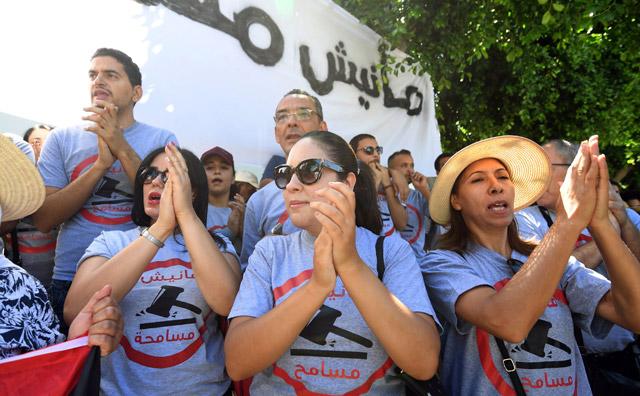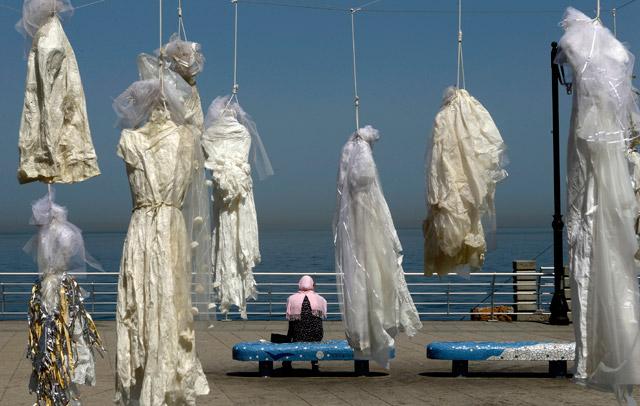You are here
Lebanon abolishes ‘marry your rapist’ law, joining other Arab states
By Thomson Reuters Foundation - Aug 16,2017 - Last updated at Aug 16,2017

This file photo taken on April 22 shows a veiled woman sitting on a bench near an installation of wedding dresses by Lebanese artist Mireille Honein and Abaad NGO at Beirut's Corniche, denouncing the article 522 of Lebanon's penal code allowing rapists who marry their victims to go free (AFP photo)
BEIRUT — Lebanon on Wednesday joined other Arab nations in abolishing a law that lets rapists escape punishment if they marry their victims in a move applauded by women's rights campaigners.
On the heels of Jordan scrapping its law earlier this month, and Tunisia doing so last month, Lebanese lawmakers voted to do away with article 522 in the Lebanese penal code.
The article includes a provision that lets a rapist off the hook if he marries his victim, and its abolition follows a lengthy — and often graphic — campaign by activists.
"This is definitely a step that needs to be celebrated for all women in Lebanon," Roula Masri of local rights group Abaad told the Thomson Reuters Foundation by phone.
Abaad has campaigned against the country's law for more than a year, posting billboards of women in bloodied and torn wedding gowns.
The caption reads: "A white dress does not cover the rape."
In April, campaigners hung white wedding dresses from nooses on Beirut's popular seafront.
"This is a very positive and long-overdue development for the protection of women's rights in Lebanon," Bassam Khawaja, Lebanon researcher at Human Rights Watch, told the Thomson Reuters Foundation by phone.
"At the same time in Lebanon, there are several long overdue women's rights developments that we still have to tackle. So parliament should... immediately pass legislation to end marital rape and also child marriage, which is still legal in Lebanon," said Khawaja.
Rights groups hope the momentum now flows to Arab countries with similar provisions such as Bahrain, Iraq, Kuwait and Syria.
Some countries in the region have already closed similar loopholes. Egypt repealed its law in 1999, and Morocco overhauled its law in 2014 following the suicide of a 16-year-old girl and the attempted suicide of a 15-year-old, both of whom were forced to marry their rapists.
Related Articles
BEIRUT — Middle Eastern countries should follow Tunisia's example and immediately repeal laws that let rapists off the hook if they marry th
BEIRUT — Lebanese activists ramped up their campaign to scrap a controversial law allowing rapists who marry their victims to go free, with
BEIRUT — A dozen Lebanese women, dressed as brides in white wedding dresses stained with fake blood and bandages, gathered Tuesday outside g


















